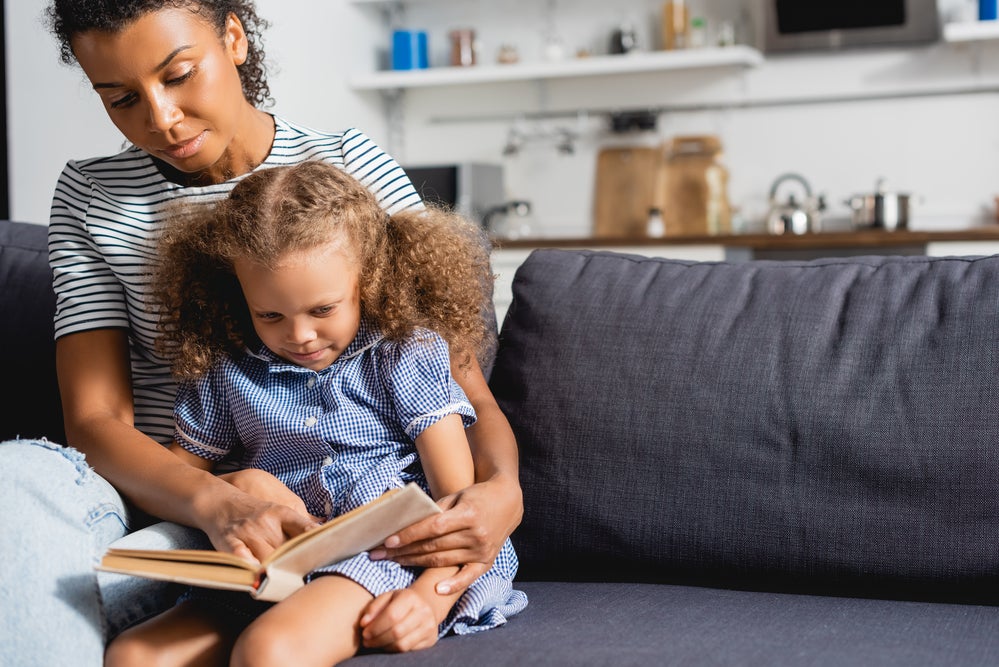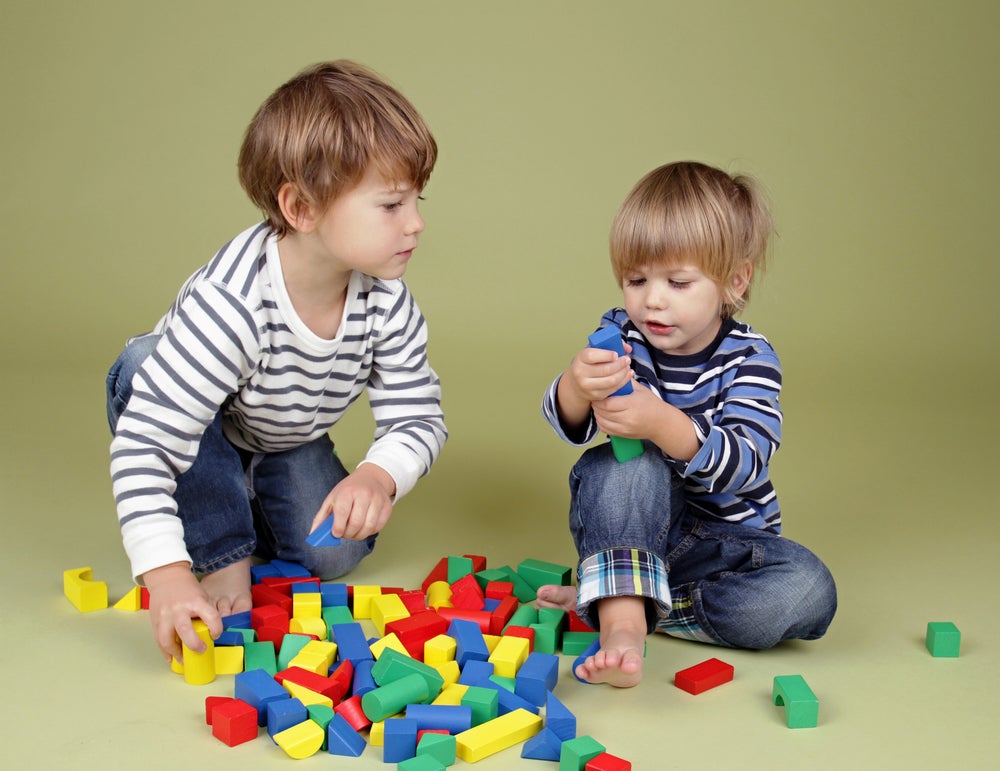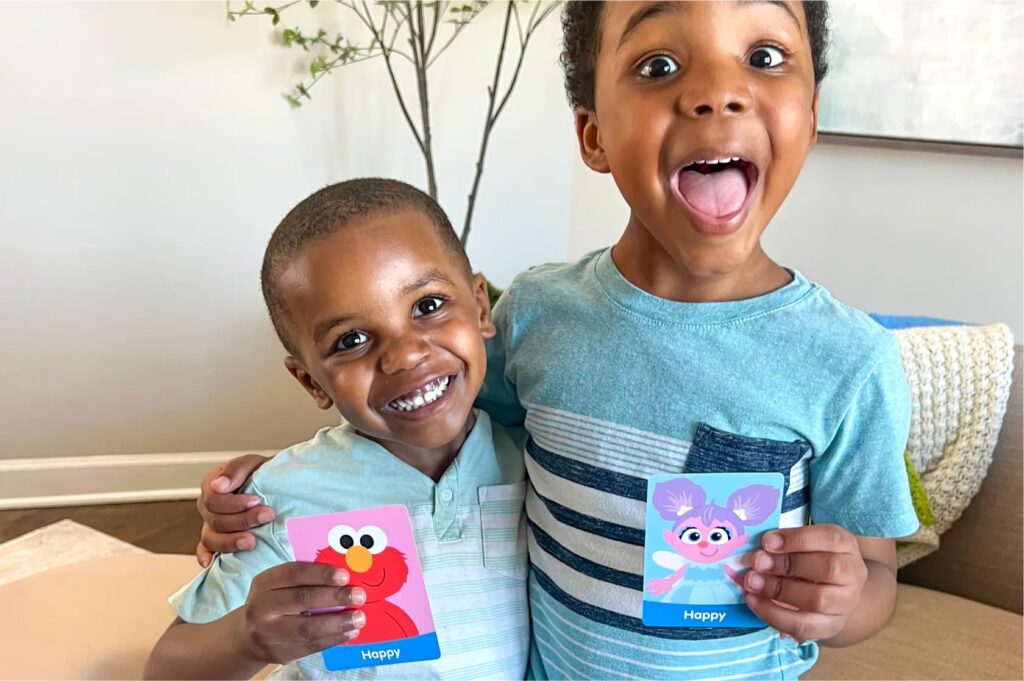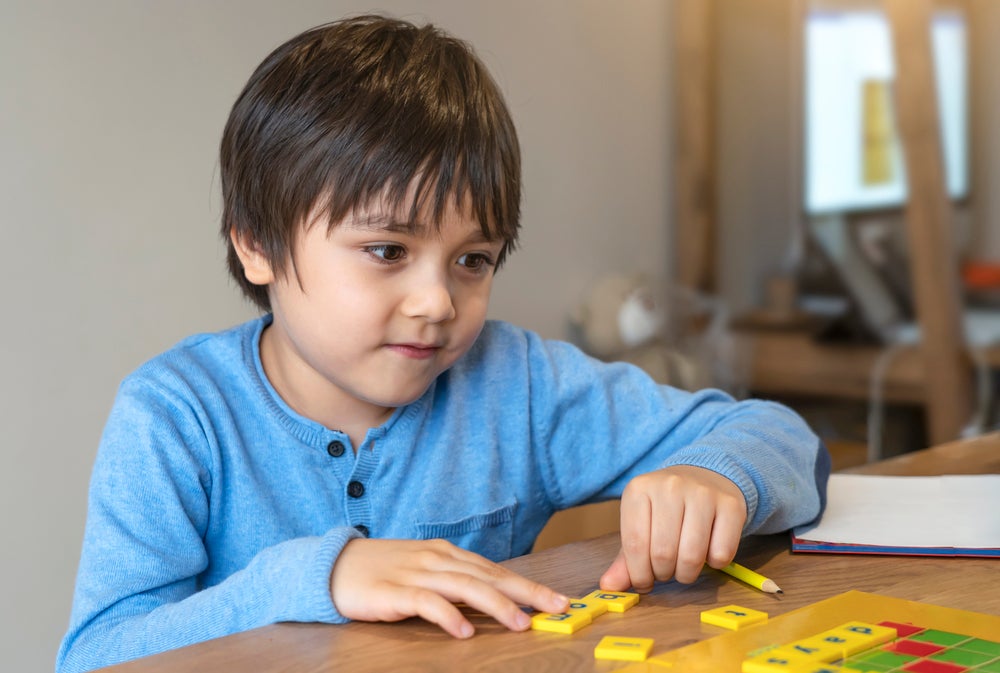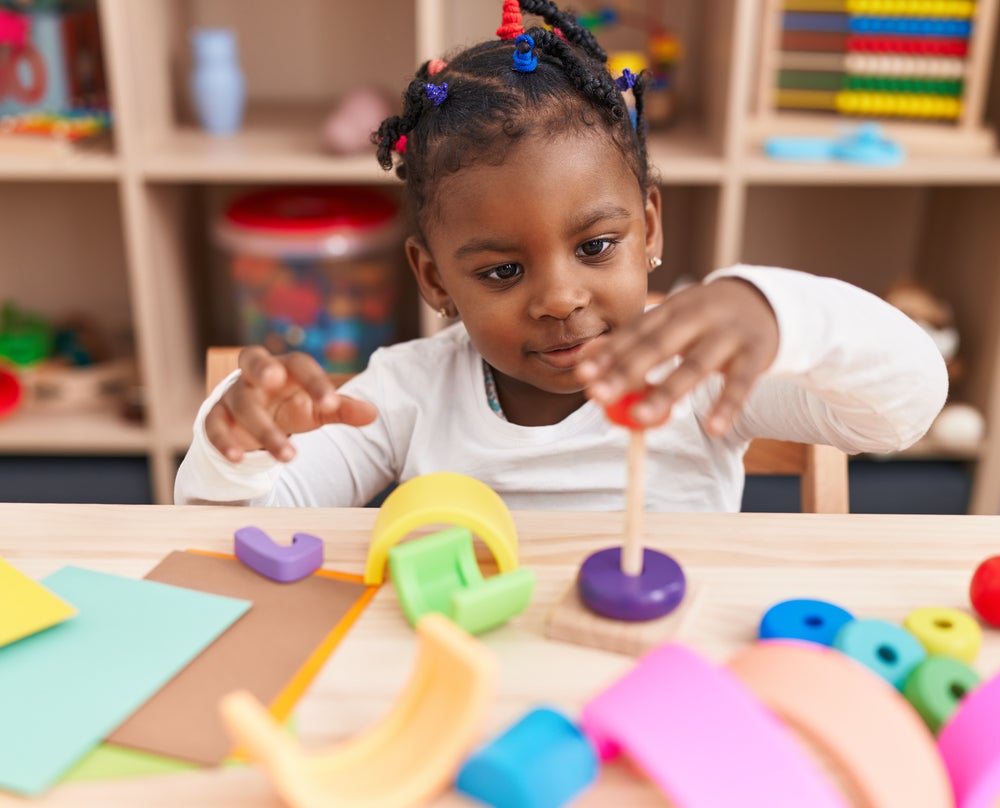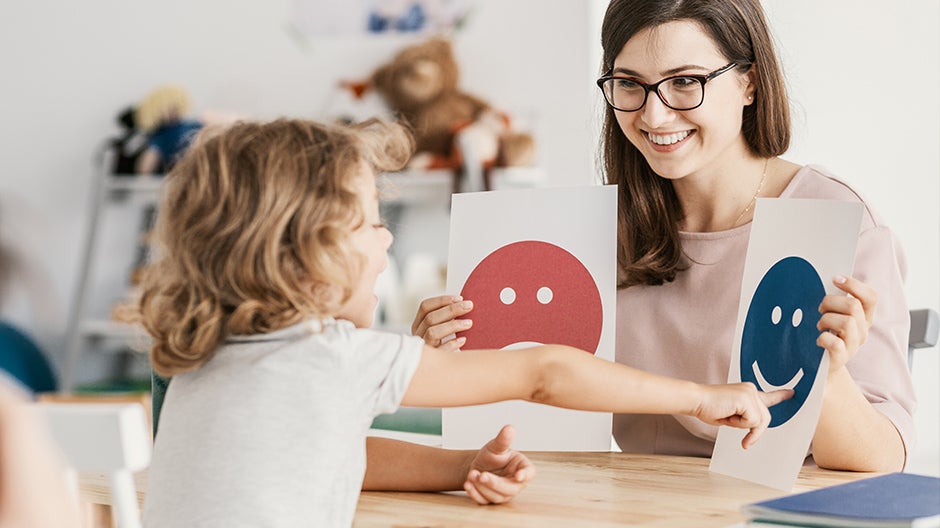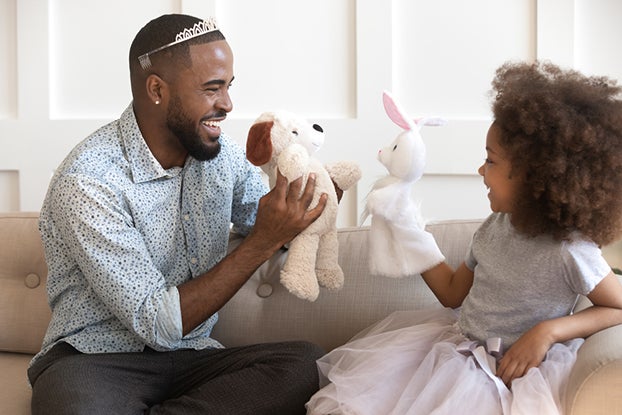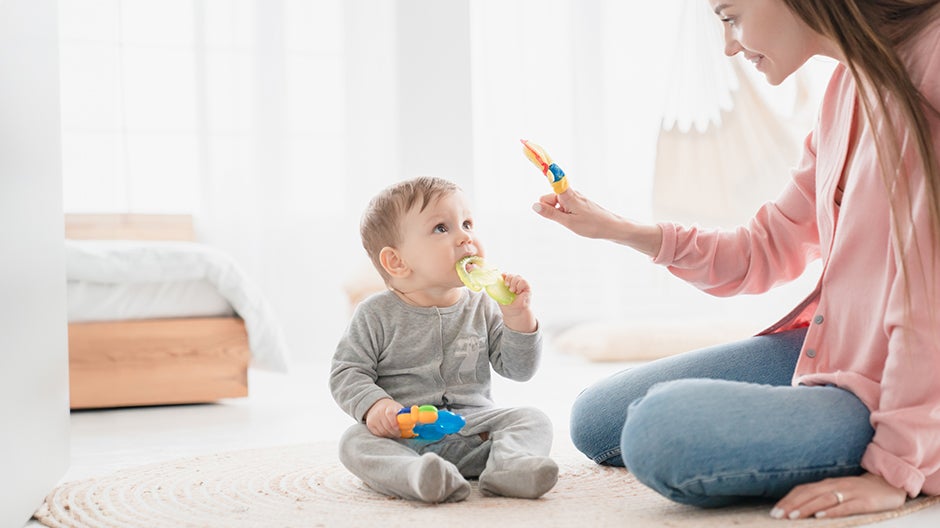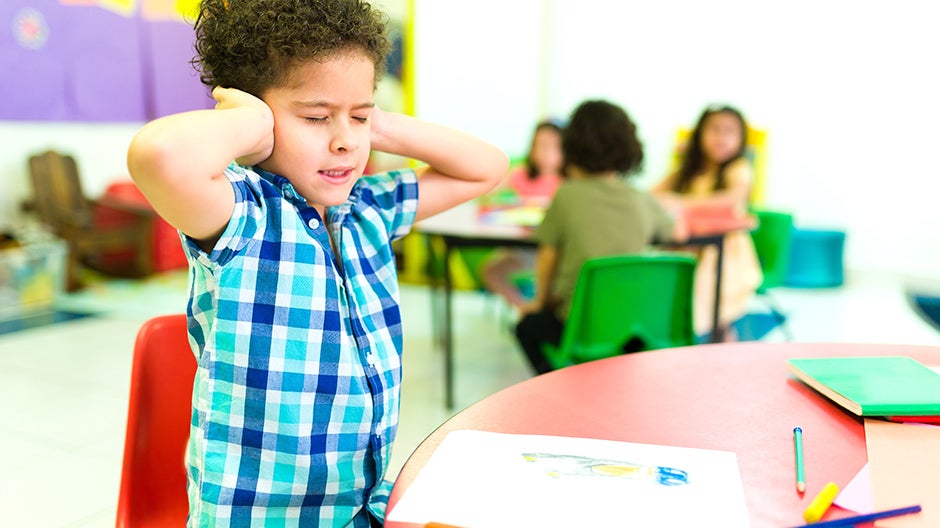From scribbled stories to made-up words, a child’s first steps in writing are exciting! But it takes time to become a proficient speller. Your child will progress through five stages of spelling development, from being precommunicative through emergent “invented” spelling to accurate “dictionary” spelling.
Curious how it all happens, and where your child is now? The early learning experts at Begin are here to help.
The Short Cut
- Spelling is an essential Core Skill, one of the 5 C’s at the heart of the Begin Approach to helping kids thrive in school and life
- Early learners with strong Core Skills do better academically in later school years
- First kids learn that writing expresses ideas, then they link letters to sounds and use phonetic spelling, and eventually they learn correct spelling
- Each stage of spelling development matters! Celebrate their progress; there’s no need to rush toward perfection
The Stages of Spelling Development
Precommunicative Stage
At the precommunicative stage of spelling development, children don’t yet understand letter-sound correspondence.
This means that the relationship between written language (the letters of the alphabet and how they combine to make words) and spoken language (vocabulary your child may already know or will eventually learn) isn’t yet clear to your child.
Your child may show a substantial interest in learning how to read and write, though. They’re probably at the height of their scribbling craze! Their stories and drawings may be full of color, but not so many letters.
The good news: this is a positive first step for children! Even if their scribbling may not be legible to us, it demonstrates that they have an understanding of what writing does — expresses and communicates their ideas.
In that way, even if their drawings and scribblings look similar to us adults, kids at this stage clearly understand the difference between the purposes of the two.
This spelling development stage may even feature some letter-learning. However, kids likely aren’t fully comfortable relating written letters to their respective sounds. That’s OK! That will happen in the next stage.
Semiphonetic Stage
The semiphonetic stage is true to its name — your child will get their first concrete exposure to phonetic learning during this time.
Initially, they’ll begin with learning how to match written letters to letter sounds. When shown letters of the alphabet, they may be able to pronounce the correct phonetic sound for each letter. For example, if they see the letter “b,” they may say “buh” for the /b/ sound.
As they transition into writing, this phonetic learning will show up in their sentences. They may even ignore vowels since they aren’t as phonetically predictable as consonant sounds. For example, they may write “i lv u” when writing out a card to family or friends.
This is nothing to worry about. In fact, it’s amazing progress! It shows that your child has a solid grasp of their phonetic letter sounds and understands how to use them in written language.
Irregular words—words that don’t sound like they’re spelled—may trip them up at this stage, but they’ll master those in time!
For now, praise your child for their progress. We know they’re doing a great job and will tackle those pesky silent e’s and -nd blends soon.
Phonetic Stage
The phonetic stage of spelling development is when your child’s letter-sound correspondence learning comes into full bloom, so to speak.
Consonant-vowel-consonant (CVC) words may become easier for them to learn and read as their foundation in phonetic spelling grows even more concrete.
They may even begin to identify groups of letters that make certain sounds when they speak. These letters are often grouped together and make common sounds in spoken language — examples include -ing, -ly, -er, sh, and so on!
When spelling non-CVC words, kids at this stage may not abide by perfect spelling rules when branching out into those phonetically irregular words. So when they want to describe a “small truck” they may end up writing about a “smol truk.”
Again, these are perfectly normal steps in your child’s ongoing spelling development and something you both should be proud of!

Transitional Stage
With their phonetic instincts strong at this point in their spelling development, your child may have increasing success with memorizing those words that just can’t be sounded out.
Rather than relying on phonology, they may begin to notice visual cues and patterns to assist them with pronunciation and word-learning. Memorization will become a handy tool to add to their arsenal.
They’ll also get some practice with synonyms — this may not be intentional practice, though. During those moments when they aren’t sure how to spell a new word, they may rely on words they’re already comfortable with!
Additionally, your child may demonstrate significant progress with hearing sounds and matching them with letters, especially when attempting to spell a word for the first time. It’s normal for them to run into hiccups. For example, they may spell “surprise” as “suprize.”
Using all of the different learning methods they’ve accumulated over the course of the other stages of spelling development will help get them where they need to go!

Correct Stage
The final stage of spelling development is the correct stage. At this point, your child fully comprehends the basic rules and patterns of English spelling.
They can handle books at their reading level on their own and have a comfortable vocabulary of words that they consistently spell correctly.
More often than not, your child can correctly assume how words are spelled after hearing them read aloud. They know how to tackle silent vowels and consonants, irregularly spelled words, and other tricky spelling tasks.
They also have the power to recognize and correct their own spelling mistakes. With a larger and more advanced vocabulary, kids in this stage are more expressive, more accurate, and more entrenched in reading than ever before!

Activities for Each Stage of Spelling Development
Precommunicative Stage Spellers
Games that encourage an interest in learning letters and letter-sounds are great for motivating your precommunicative stage speller.
Refrigerator-magnet letters are handy for young children working through this stage. You can play scavenger hunts with them or create “pits” of letters where they try to find the letter that matches the letter sound you make.
They can also “feed” letters to their stuffed animals. You can say, “Mr. Crocodile is hungry for the /k/ sound today!” and assist them with giving the animal all the K’s in their collection.
Alphabet puzzles that focus on letter-sound correspondence, singing the alphabet song, and other singalongs can also set your child up for a fun learning adventure that’s only just beginning!
Keeping lots of paper and crayons around will also encourage them to “write” and “draw” stories. If your child shows you something they just worked on, ask them to tell you about what they wrote.
Semiphonetic Stage Spellers
In this stage, you’ll continue to emphasize letter-sound correspondence activities to assist your child’s phonological skills. You can utilize the activities we mentioned above or explore some other letter-sound correspondence activities!
Phonetic Stage Spellers
Your child’s letter-sound correspondence practice will pay off as they move onto the phonetic stage of spelling.
There are tons of phonics games out there — including plenty on our HOMER app — and the most successful ones will reinforce your child’s comfort level with phonetic spelling.
Rhyming games, for example, are an excellent way to sharpen their phonics spelling skills. You can play a “wrong word” game together.
First, you’ll start by thinking of a “rhyming” sound to focus on. For our example, we’ll use the /at/ sound. Next, tell your child three words. The catch is that one of the words doesn’t fit (rhyme) and they need to find the wrong word.
You can say, “cat, bat, and mug.” Then ask your child which word doesn’t fit. They’re sure to burst into a fit of giggles for your silly rhyming mistakes!
You might take a moment to spell out the rhyming sound so your child knows how to spell the sound they’re listening for.
Transitional Stage Spellers
For transitional spellers, the games can be kicked up a notch. You can begin to explore sight word games with your child, as well as test their knowledge of the words they already know!
One idea would be to host a fake spelling bee. You can go first to showcase how it’s done. You’ll begin to spell a word for your child. If you spell it wrong, they have to yell “WRONG!” and then “steal” your turn by spelling it correctly.
If they spell it correctly, they get a point. If they said you spelled it wrong but you were actually correct, they lose a point.
If your child doesn’t like the pressure of spelling out loud just yet, you can play a game with a ball instead. In this game, you’ll hold up two cards with alternate spellings of the same word.
Your child’s goal is to identify the correct spelling and throw the ball at that card. For every correct answer, they get a point. Don’t forget the grand prize at the end!
Correct Stage Spellers
Once your child reaches the final milestone in the stages of spelling development, you can turn to more challenging games. And there are some classic spelling games that just can’t be beaten.
For example, we love Scrabble! It’s a celebration of words, and it’s great for having a blast while practicing your child’s spelling skills at the same time.
Other great games that help with spelling include Hangman, Boggle, and Bananagrams. The possibilities are endless when it comes to spelling and fun!
Spelling Development with Begin
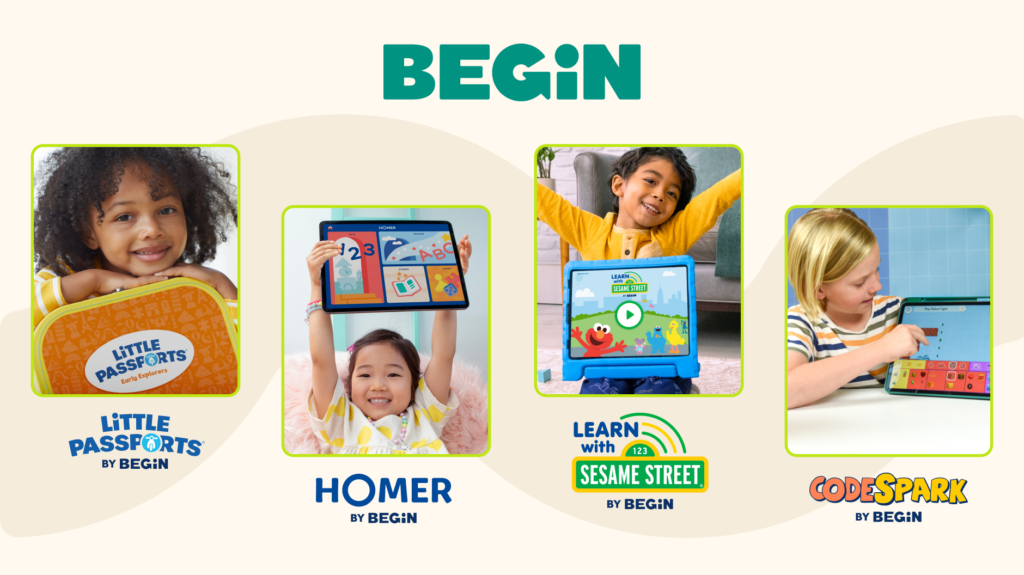
No matter what stage of spelling development your child is currently in, it takes time and patience for them to move to the next one. But with lots of love and encouragement, they’ll get there before you know it.
For those days you need a little helping hand to work with your child on their spelling development, our award-winning HOMER early learning app is ready to assist! Or you can go farther and support your child in every area of their development with our age- and stage-matched learning membership.
They’ll go at their own pace while learning how to spell—all while having a blast. Take our online quiz and see how we can help your family today!
